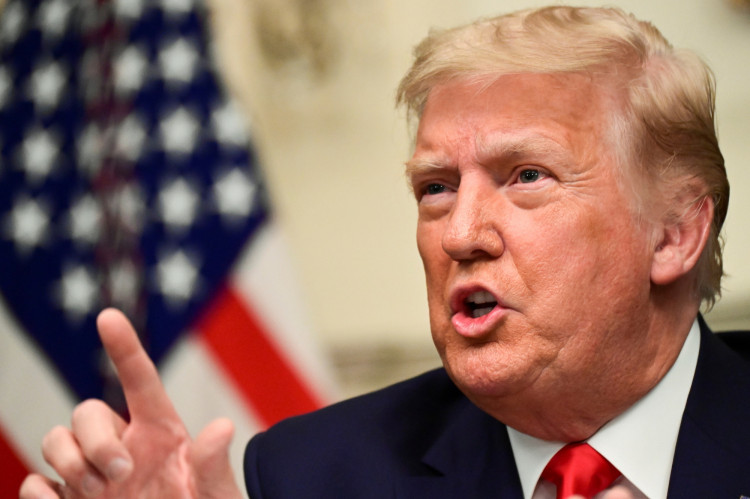The Republican Party has formally nominated Donald Trump as its presidential candidate for the third consecutive cycle. This development cements Trump's status as the dominant force within the GOP nearly a decade after his first ascent to the party's leadership. The selection was announced at the Republican National Convention in Milwaukee, marking a significant moment in American political history.
Trump's nomination comes despite a series of legal challenges and political controversies that have marked his post-presidency years. Over the past three years, Trump has faced condemnation for his role in the January 6 riot, multiple criminal indictments, and political setbacks. Most recently, he survived an assassination attempt at a rally in Butler, Pennsylvania, further complicating an already tumultuous campaign.
The former president's nomination was widely anticipated, as an overwhelming majority of convention delegates had pledged their support for Trump following his dominance in the primaries. Nikki Haley, the former governor of South Carolina and one of Trump's primary challengers, released her delegates earlier this month and encouraged them to back Trump.
"This is a moment that has been building since the former president left office in 2021," said a senior GOP official. The sentiment underscores the enduring influence Trump has maintained within the Republican Party, despite the numerous controversies that have surrounded him.
In the wake of the January 6 insurrection and his attempts to overturn the 2020 election results, Trump faced significant backlash from within his party. Many Republicans distanced themselves from him, citing his actions as politically toxic. The GOP lost control of the House and Senate during his presidency, and Trump was partially blamed for the party's underperformance in the 2022 midterm elections.
Adding to his political woes, Trump has been embroiled in several legal battles. He was convicted in New York for covering up hush money payments to a porn star, faced federal and state charges related to his efforts to subvert the 2020 election, and was indicted in Florida for hoarding classified documents. Despite these challenges, Trump managed to secure the Republican nomination, showcasing his ability to rally his base and maintain a firm grip on the party.
Throughout the primaries, Trump faced a crowded field of GOP contenders, including notable figures such as Haley, Chris Christie, Ron DeSantis, Mike Pence, Vivek Ramaswamy, and Tim Scott. Each hoped to present a fresh perspective and challenge Trump's dominance. However, Trump decisively defeated his rivals, solidifying his position as the party's standard-bearer.
Trump's selection of Ohio Senator J.D. Vance as his running mate further strengthens his ticket. Vance, once a critic of Trump, has become a staunch ally and is expected to bolster Trump's appeal among working-class voters in key battleground states.
The Republican National Convention's roll call vote confirmed Trump as the official nominee, with nearly 2,500 GOP delegates affirming his candidacy. This makes Trump one of the few major-party candidates to be nominated for the presidency more than twice, joining the ranks of Thomas Jefferson, Richard Nixon, and Franklin D. Roosevelt.
Trump's journey to the nomination has not been without its dramatic moments. The assassination attempt at his rally in Pennsylvania left one rallygoer dead and two others wounded. Trump himself sustained a minor injury when a bullet pierced his right ear. The gunman, identified as 20-year-old Thomas Matthew Crooks, was shot dead by a Secret Service sniper team.
In response to the attack, both Democrats and Republicans condemned the violence, with an outpouring of support for Trump from across the political spectrum. This unity, albeit temporary, highlights the intense polarization and high stakes of the upcoming election.






